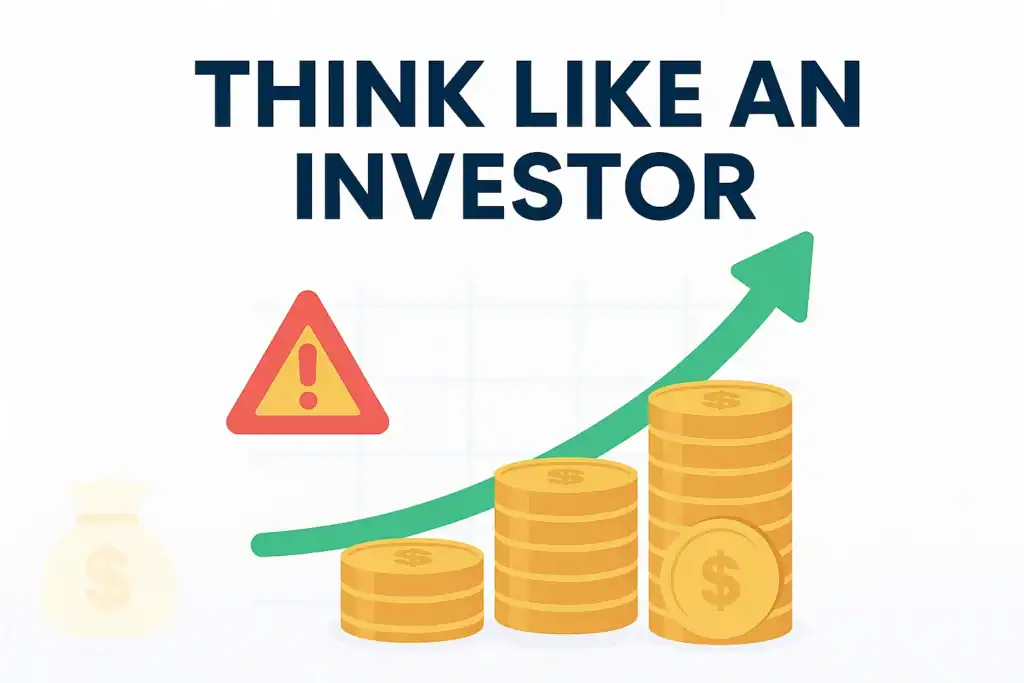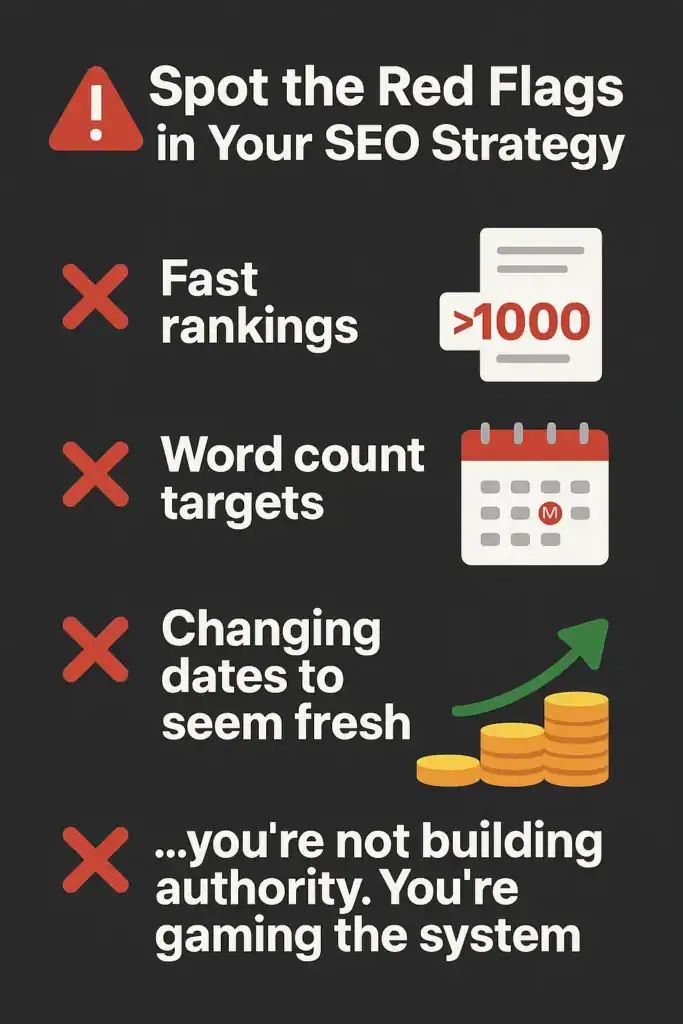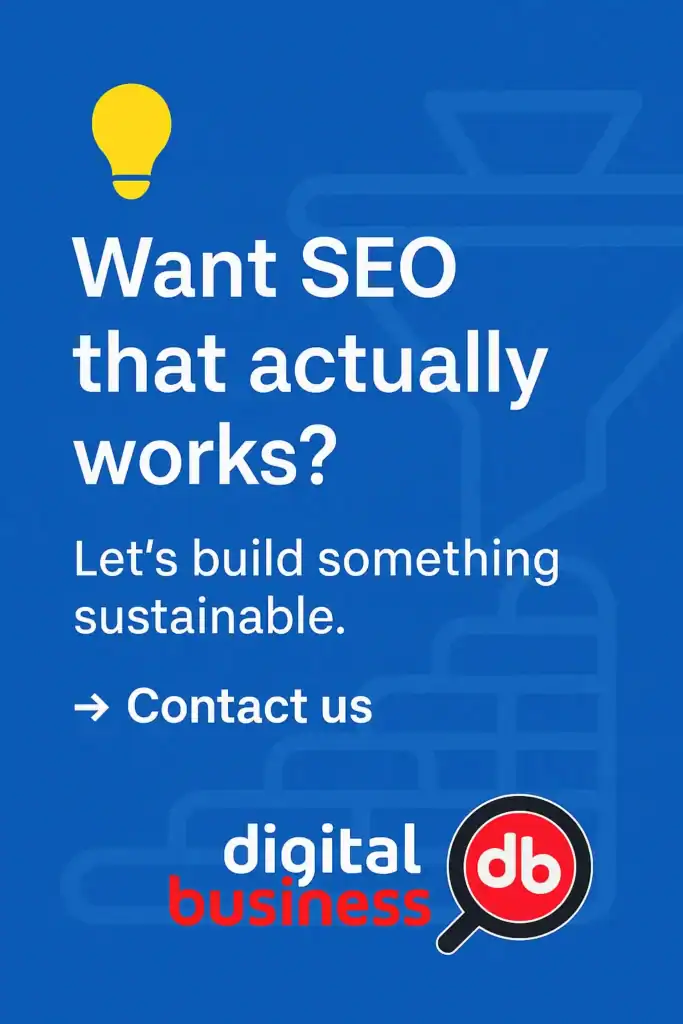
Table of Contents
If someone told you SEO is all about quick wins and fast rankings, it’s time to challenge that. Because the truth is: fast SEO is fragile SEO.
Sure, it might give you a traffic spike for a few days or weeks. But like a crash diet, the results never last. Rankings drop, site trust erodes, and you’re back where you started—except this time, your domain’s reputation might be worse off than before.
At Digital Business, we work with brands who want real, measurable growth. And real SEO? It’s not a shortcut. It’s a strategy.
The Myth of Fast Wins

The digital world is full of noise. “Rank #1 in 30 days!” “Explode your traffic overnight!” “Just follow this hack…”
These are common lines from agencies and freelancers who treat SEO like a vending machine—plug in money, get clicks. But SEO doesn’t work like that. Not anymore. And not if you’re aiming for sustainable, profitable traffic that converts.
In fact, Google’s own Helpful Content Guidelines clearly outline what it values most:
- First-hand expertise
- Truly helpful content
- Clear site purpose
- Consistent value to the reader
If you’re chasing rankings instead of helping people, Google can tell—and it won’t reward you for it.
SEO is a Long-Term Asset

Think of great SEO like compound interest.
It’s slow at first. Then, as your content matures, clusters interlink, backlinks roll in, and updates keep things fresh, your results accelerate. It’s not about getting ranked. It’s about staying ranked.
Here’s what long-term SEO looks like:
- Pages that improve over time
- Content clusters that build topical authority
- Updates that actually improve user value
- Links earned naturally through relevance and quality
- A site architecture that builds trust
In short: every page becomes a revenue-generating asset.
💰 SEO ROI Calculator
Estimate when your SEO investment becomes profitable
Spot the Red Flags

Here’s how to know if someone’s selling you short-term fluff instead of a long-term strategy:
- They talk about “word count” targets, not topic depth
- They update content just to change the date
- They recommend low-effort tactics to “game” the algorithm
- They can’t explain how your site will grow 6 months from now
If your SEO plan looks like this, you’re not building authority—you’re trying to manipulate a system that’s too smart to be fooled.
Ask This One Question
Before signing any SEO retainer or content deal, ask:
“How will you make my site better 6 months from now?”
If the answer involves buzzwords, traffic projections, or vague tactics—walk away. If the answer involves content quality, topic clusters, internal linking, and technical health—you’re on the right track.

The Bottom Line

SEO isn’t a tactic. It’s a strategy. And like all good strategies, it rewards patience, effort, and expertise.
Stop chasing quick wins. Start building long-term, profitable growth.
If you’re ready to ditch the fluff and invest in SEO that actually works, we’d love to chat.
👉 Get in touch here or DM us on LinkedIn.
📈 What Happens Over 6–12 Months of Good SEO
Site audit, keyword research, technical fixes, and strategy planning.
FAQs: Cutting Through the SEO Confusion
When you’re building an SEO strategy for the long haul, it’s important to separate fluff from facts. Here are quick answers to some of the most common (and commonly misunderstood) questions.
What’s the Pareto principle in the context of SEO?
The Pareto Principle—aka the 80/20 rule—means that roughly 80% of your organic traffic will come from just 20% of your content. So instead of chasing quantity, focus on improving and promoting your highest-performing pages. That’s where the real ROI lives.
What does the 10x rule mean in SEO?
It’s simple: create content that’s ten times better than anything else on page one. Not slightly better—10x better. That means deeper insights, better formatting, clearer answers, and more value. It’s not about doing more—it’s about doing what matters better.
Is AI making SEO obsolete?
No—but it’s changing the game. AI can help generate content faster, but Google rewards originality, experience, and trust. If you’re relying on AI to mass-produce fluff, you’re going to get burned. Use it to enhance human insight, not replace it.
What’s the speed at which SEO can deliver results?
Expect to wait 3–6 months before seeing meaningful movement—and that’s if you’re doing everything right. SEO isn’t fast. But it’s scalable, sustainable, and profitable if you treat it like a strategy, not a shortcut.

4 responses